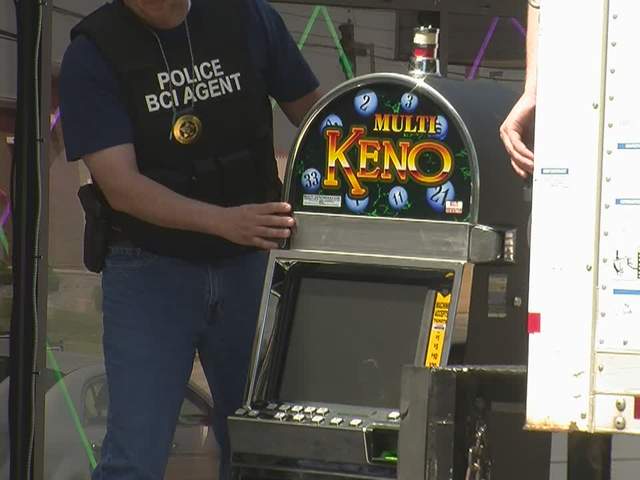Ohio Casino Revenues Slip as Arrests Made in Illegal Busts
Posted on: April 11, 2014, 05:30h.
Last updated on: October 26, 2021, 05:20h.

In the same week that Ohio’s new legal casinos reported a slip in revenues, three people have been charged for operating an illegal casino in the state.
Jerry Warren, 70 of Canton; Tracie Warren-Pastore, 45, of North Canton; and Yabacushyanei Bennett, 45, of Canton were charged with operating an illegal gambling business and money laundering in relation to the “The Golden Nugget”, a Canton business masquerading as a “skill games parlor”, which had 200 slot machines and gross revenues of $2,000 per day.
A joint investigation by the US Justice Department, the Internal Revenue Service and the Ohio Casino Control Commission closed down the operation 11 months ago, which resulted in the criminal indictments this week. Authorities are seeking forfeiture of $1.3 million and four vehicles: a 2011 Jaguar XJ8, a 2011 Mazda CX-9, a 2008 Land Rover and a 2000 Porsche Boxter.
“The Game is Up”
“This trio ran their own illegal casino in Canton, complete with 200 slot machines,” said US attorney for the northern district of Ohio Steven M. Dettelbach. “Now the game is up, and they will be held accountable for their actions … This case illustrates the need for vigilance in the enforcement of Ohio’s Casino Control Act. There are only four legal casinos in Ohio; this was clearly an illegal gambling house.”
State regulators have said that there may be hundreds of similar operations in the state.
“We have evidence that there are places that are referring to themselves as skill games, which are operating games of chance, which is against the law, and paying out cash prizes, which is also against the law,” said executive director of the Casino Control Commission Matt Schuler.
House Bill 491 includes a new stipulation that skill-game operators must register with the Casino Control Commission. This, said Schuler, will provide a “uniform and consistent statewide approach to ensuring only legal skill games are operating in Ohio.”
In law, skill games must be dependent entirely on the skill of the player and can under no definition be a game of chance, while prizes offered are limited to merchandise or gift certificates that may not exceed $10.
“Federal laws that regulate the reporting of financial transactions are in place to detect and stop illegal activities,” said Kathy Enstrom, Special Agent in Charge, IRS Criminal Investigation, Cincinnati Field Office. “IRS Criminal Investigation is committed to enforcing these laws and following the money, wherever it leads.”
Legal Casinos Slip
This may come as little consolation to the state’s legal casinos which have seen revenues drop on last year. Ohio’s four casinos generated $79.6 million overall in March, which is down 5.6 percent from the same month in 2013.
Customers spent $20.2 million at Casino Cincinnati Horseshoe in March – down 4 percent from March 2013, which was the casino’s opening month. The picture looks bleaker in Cleveland, however, with revenue dropping 13.1 percent to $21.3 million at the Cleveland Horseshoe, perhaps due to competition from two new racinos which opened last year: ThistleDown and the Hard Rock Rocksino.
Gross casino revenues are taxed at 33 percent in Ohio, one of the highest rates in the US. Casino gambling was legalized in the state in November 2009, after the fifth statewide vote on the subject in 20 years.